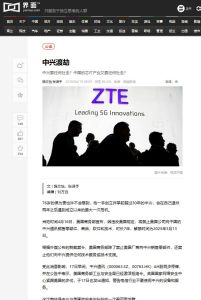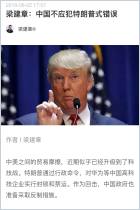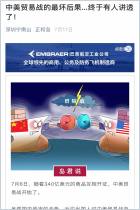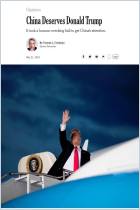
ZTE: When Disaster Strikes
What US sanctions could mean for the Chinese telecom giant
Read or listen offline
Amazon KindleRecommendation
It looked like game over for ZTE, China’s premiere telecom company. In March 2016, the US Commerce Department (DOC) alleged that ZTE had violated sanctions against Iran by exporting US-made goods to the country. The DOC then fined the company and imposed trade restrictions, making it hard for ZTE to source American technology for its own products. Things took a turn for the worse after ZTE reneged on a deal that served as punishment for the violation. A year later, ZTE found itself on the brink of collapse. Jiemian tech news reporters Rao Wenyi and Zhang Yiyu thoroughly analyze what ZTE has to lose and shed light on a dilemma that could hobble China’s IT industry in the future. Since the article went to press, the Trump administration brokered a deal with Beijing, which allows ZTE to resume business in the United States under the condition that it pays a hefty fines, overhauls its management and remains under American surveillance. ZTE stocks have resumed trading on the Hong Kong stock exchange, and it’s showing signs of recovery. getAbstract recommends this article to those wondering how one foreign government can bring down a company.
Summary
About the Authors
Rao Wenyi and Zhang Yiyu are Jiemian reporters who cover global finance and technology.

























Comment on this summary or Start Discussion